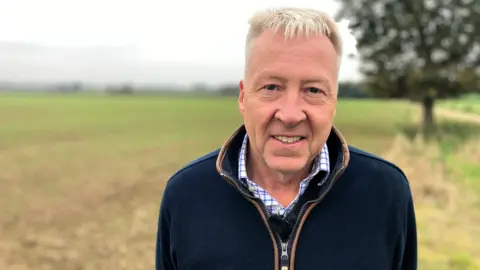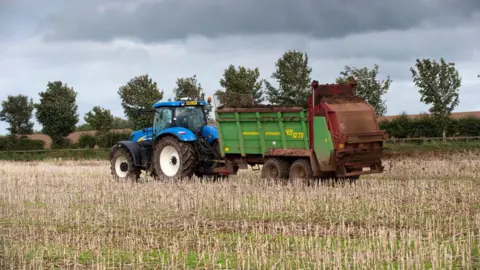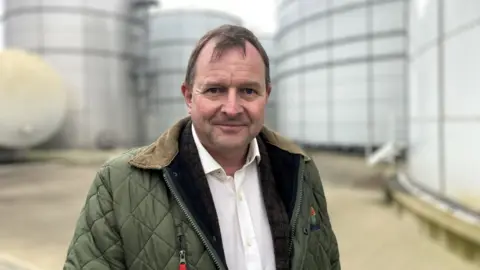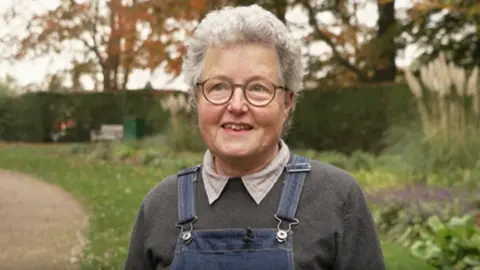Fears new environment tax will raise food prices
 Robby West/BBC
Robby West/BBCA new environmental tax on imported industrial goods such as fertiliser will lead to higher food prices, businesses have warned.
From January 2027, sectors at risk of "carbon leakage" will be charged what they would have done had the goods been produced in the UK.
The government, which confirmed the levy in last week's budget, said it would help tackle global emissions.
However, James Alston, a wheat farmer in Norfolk, said he feared UK food production would "continue to decline".
 Getty Images
Getty Images"Most farms and agricultural businesses at the moment are either making no money or they're losing money," said Mr Alston, a third-generation farmer from Silfield, near Wymondham.
"We're no longer in a position where farmers can keep absorbing these extra costs."
Mr Alston said farmers had already suffered financial setbacks in recent years due to Brexit, extreme weather and high interest rates.
Carbon leakage is where businesses transfer production to other countries with less stringent emission policies, and often with lower carbon levies.
The UK government says the new tax, known as a Carbon Border Adjustment Mechanism (CBAM) will ensure a "true reduction" of carbon emissions overseas, rather than displacement.
The tax will apply to sectors importing "carbon intensive goods" such as cement, fertiliser, iron and steel.
The European Union introduced its own CBAM in 2023 to "encourage cleaner industrial production in non-EU countries" and to put a "fair price" on the carbon emitted on goods entering the EU.
 Robby West/BBC
Robby West/BBCLord John Fuller, a Conservative peer and chairman of Great Yarmouth-based Brineflow, a supplier of fertiliser from outside the EU, said he was concerned about the impact of the new levy.
“All it will do is cost more and do nothing to reduce carbon in other parts of the world," he said.
"The suggestion that we’re going to create a new golden age of fertiliser production here in the UK is for the birds.
"This is just an extra tax on farmers which will go through into the cost of bread and beer."
The UK's CBAM was first announced by the Conservative government in 2023, but was confirmed by the Labour chancellor Rachel Reeves in last week's budget.

Catherine Rowett, a former Green Party Member of the European Parliament (MEP), backs the new tax.
"It's really important that when we're taking climate action and we're going for our proper targets for net zero, the rest of the world has to do it too," she said.
"One of the most important ways to do that is by a carbon border adjustment mechanism.
"If that makes food a little bit more expensive, then measures need to be brought in for farmers to a make a profit to enable ordinary people to afford good food."
The government, which was approached for comment, has pledged to achieve net zero by 2050.
Follow Norfolk news on BBC Sounds, Facebook, Instagram and X.
